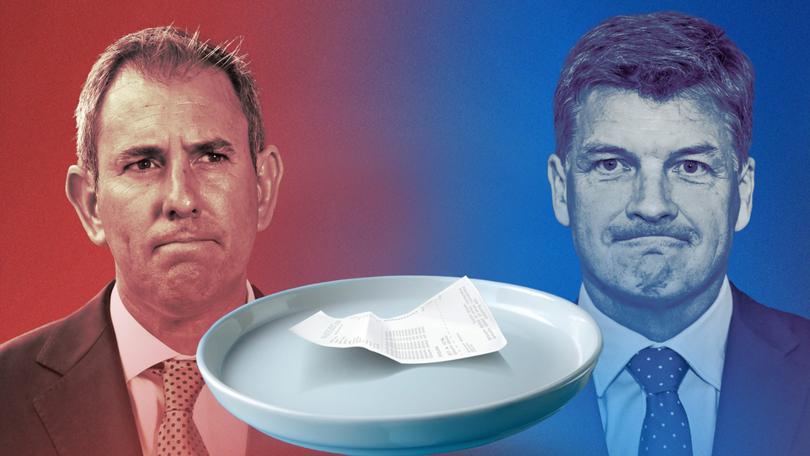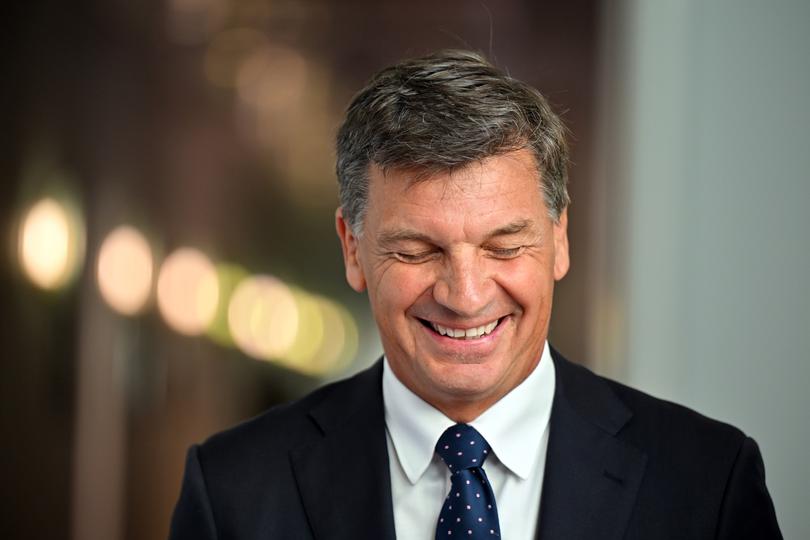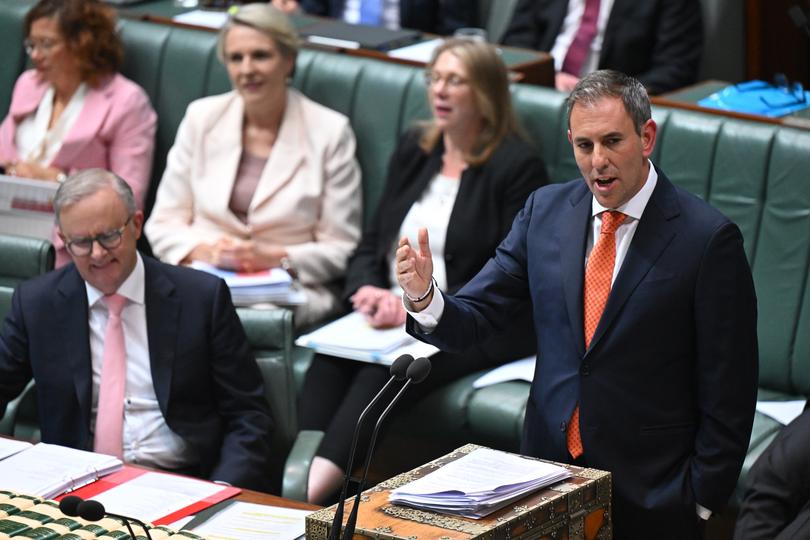AARON PATRICK: Big business CEOs get tax-deductible lunches. Should you?
AARON PATRICK: Labor has hit back at the Opposition’s expenses plan in Question Time as Treasurer Jim Chalmers claims the practice of tax-deducted dining for bosses defies ‘social justice’.

Going to lunch with colleagues can be terrific fun, or a dull chore. Sometimes they’re rewards. Other times they’re used to deliver bad news. They can make and break careers.
Should they be a business expense? This looks like one of the defining questions of the 2025 federal election.
Shadow treasurer Angus Taylor, in parliament on Tuesday, delivered what he believes is the best argument for the tax-deductible business lunch, a 1980s institution many Australians never expected to see again.
Sign up to The Nightly's newsletters.
Get the first look at the digital newspaper, curated daily stories and breaking headlines delivered to your inbox.
By continuing you agree to our Terms and Privacy Policy.“Unlike small business, big businesses such as Coles, Qantas and Woolworths can cater in-house and do so as a tax deduction,” Taylor asked Treasurer Jim Chalmers. “How much does this cost the budget?”
The question was rhetorical. But it was worth raising the inconsistency: why should large companies receive a benefit most businesses can not?
The answer, according to Chalmers, is because tax breaks for “long lunches for bosses” defy “social justice”.

Qantas Airways would not reveal if chief executive Vanessa Hudson enjoys company-funded hospitality at the airline’s offices near Sydney Airport. But it would be reasonable to assume, given the heavy traffic from Mascot to central Sydney’s restaurants, Ms Hudson, like many CEOs of large companies, has access to corporate-funded food from time to time.
To be fair on Qantas, though, the airline does not operate in-house catering for staff, either junior or senior. Nor does Woolworths.
Under the Coalition’s policy, small businesses would be allowed to claim $20,000 a year for spending on food and drinks. Alcohol would not be covered, and the benefit would be available to all employees, not just managers.
Based on its behaviour during question time on Tuesday, the government sees the plan as a big political vulnerability for the Coalition.
Chalmers loves to taunt Taylor, and ridiculed the former management consultant with calculations from the Treasury department that estimated the policy would cost $1.6 billion to $10 billion a year.
The higher estimate is an extreme scenario where 2.4 million businesses claim $20,000 a year, including newsagency and coffee shop owners. Each would avoid $5,000 in taxes, because small businesses pay 25 per cent income tax.
Chalmers’ office sent the estimates to some newspapers on Monday evening. The treasurer held a morning press conference on Tuesday in Canberra to provide footage for radio and television stations. At question time, Prime Minister Anthony Albanese and several ministers contrast what they said was the government’s financial rectitude with Coalition tax breaks.

The analysis will allow the government to cite the theoretical $10 billion cost from now until the election, which is due by May 17.
“That’s a lot of steak tartare,” said Education Minister Jason Clare. “That is a lot of lobster.”
Clare’s fine-dining examples are dated. Australia’s best restaurant, according to Gourmet Traveller magazine, Sydney’s Cafe Paci, does not sell lobster or steak tartare. Its most expensive dish, at $68, is steak and chips.
As for the policy’s cost, the amount is contested.
Taylor, whose espouses a smaller-government philosophy, would not share his figures with The Nightly. But the Coalition gave research with to The Australian Financial Review two weeks ago based on a similar but not identical policy that put the cost at less than $250 million, or 0.03 per cent of government spending this year.
Tax experts dislike the policy. They would prefer tax cuts that do not encourage spending in certain areas. Economist Saul Eslake said it would be a dumb decision because it would increase the number of jobs in small business, which he considers less efficient than big companies.
Restaurants and caterers love the idea, and it might help inequality by generating jobs for unskilled workers.
Reducing business taxes in Australia is hard, even though economists believe reducing business taxes helps everyone by driving economic growth. Business tax cuts are usually defeated by anti-business rhetoric.
The decision by opposition leader Peter Dutton to seek the reintroduction of the tax-deductible lunch is an example of his populist approach to policy. Most Liberal leaders of the past twenty years have endorsed conventional free-market economics.
The former policeman has shown through his policies, including subsidies for nuclear power, that he does not feel bound by party’s ideological heritage.
That makes him more politically versatile. It also exposes him to attacks from a government celebrating falling inflation and low unemployment.

